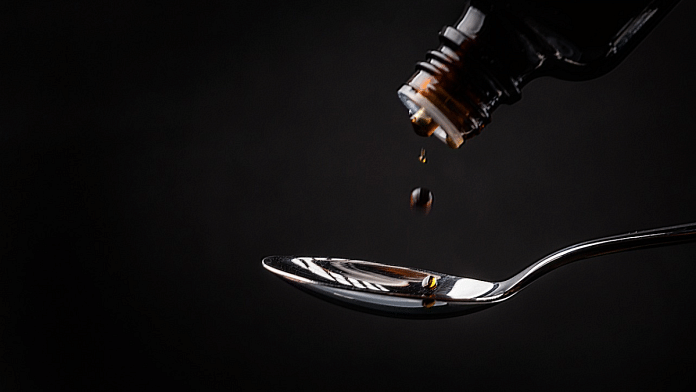New Delhi: After an alert by the World Health Organisation (WHO) and subsequent bans in several countries on cough syrups containing pholcodine over safety concerns, the Drug Controller General of India (DCGI) has now issued advisory for doctors and patients against its use.
Pholcodine is used in adults and children to treat dry coughs. Several preparations are readily available and commonly used as over-the-counter tablets and syrups globally, according to the WHO.
In an advisory issued 14 July, the DCGI said that the WHO had alerted healthcare professionals and regulatory authorities of the risk of anaphylactic reactions (severe allergic reactions that can sometimes be life-threatening) in people who have taken pholcodine containing cough and cold remedies at least 12 months prior to surgical procedures involving the administration of general anesthesia with neuromuscular blocking agents (NMBAs).
“Further, many regulatory authorities have reviewed and withdrawn/ restricted Pholcodine containing cough and cold remedies,” reads the advisory undersigned by DCGI Rajeev Singh Raghuvanshi.
ThePrint has a copy of the advisory.
“Some regulatory agencies have issued warnings to the healthcare professionals and consumers,” the advisory said, noting that the matter was referred to Subject Expert Committee (Antimicrobial and Antiviral) in a meeting in June to seek expert opinion on the safety alert published by WHO on the prior use of pholcodine containing cough and cold remedies.
The committee, as per the advisory, recommended to issue the advisory to doctors, healthcare providers and consumers after detailed deliberation.
The drug regulator has suggested doctors advise patients to stop taking pholcodine containing cough and cold remedies and suggest an alternative to treat their symptoms.
They were also advised to verify whether the patient scheduled to take general anesthetics containing neuromuscular blocking agents (NMBAS) have taken Pholcodine containing cough and cold remedies in the previous 12 months and also be aware of anaphylactic reactions in such patients.
The regulator also asked patients to be careful in taking pholcodine containing cough and cold remedies and consult doctors or pharmacists to suggest an alternative treatment.
In case of patients who are going to take general anesthetics and have taken pholcodine containing cough and cold remedies in the past 12 months, as per the advisory, they should be reported to the doctors prior to the procedure.
Pholcodine and safety concerns
Pholcodine is an opioid based cough suppressant used to alleviate dry cough. Its mechanism of action involves suppressing the cough center of the brain. As a result, pholcodine is a common ingredient in various cough syrups.
However, it is important to note that pholcodine is contraindicated — a drug or treatment not to be used in a particular situation as it is likely to harmful — in patients with liver disease due to its primarily hepatic excretion, say some healthcare professionals.
Dr Shreya Dubey, consultant-neonatology and pediatrics with CK Birla Hospital in Gurugram, pointed out that some common general side effects of pholcodine include dizziness, nausea, vomiting, and constipation.
“Pholcodine is also occasionally used as a mild sedative, but this use is not recommended,” she underlined.
Reports of severe allergic or anaphylactic reactions due to the interaction of codeine with muscle relaxants, especially the neuromuscular blocking agents used during anesthesia and surgery, have been documented, she also said.
The administration of pholcodine causes the production of specific antibodies, significantly increasing the risk of severe allergic reactions or anaphylaxis by 300 times during anesthesia, she said. “These antibodies can take several years to clear from the body.”
(Edited by Tony Rai)
Also Read: Tweak norms on ‘biosimilars’ to make new life-saving drugs cheaper — patient rights groups to govt



